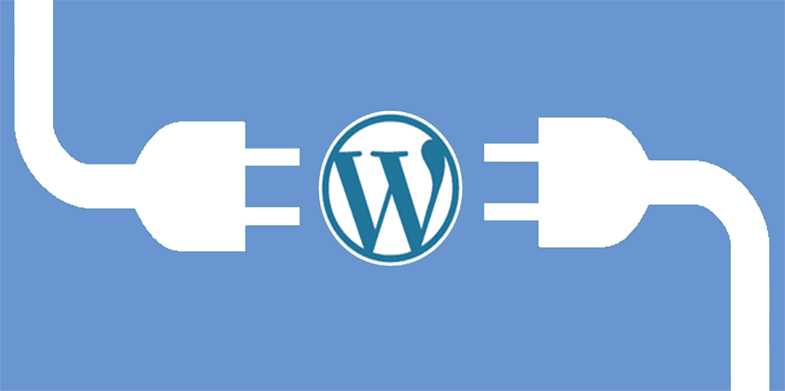In this modern digitalized world it is important for any business to come up with a professionally built website. It significantly helps businesses convert visitors into prospective customers. But building a website is not an easy task. You will need to take into account various significant things before you can finally launch a website. Questions like which platform will be the best for your business? Which hosting server should you choose? Will a simple content management system like WordPress fulfill my business needs or do I need to use a solid PHP framework such as Laravel?
In this article, we will help you make a better-informed decision while choosing between the two very popular website building platforms, WordPress and Laravel and why you should go with the latter.
WordPress vs Laravel
WordPress

WordPress is a content management system (CMS) that can build websites using customizable themes or tailor-made solutions. Many non-technical users prefer WordPress as it provides its users with high flexibility and a fast development cycle. It is simple, SEO-friendly and largely used to develop content-specific websites.
Launched in 2003, WordPress has become the most popular CMS. It has a large and open range of plugins that can be used to expand the website functionality. WordPress is specifically designed for managing content. So, businesses looking to develop a content-based website such as blogs or newspapers or portfolios or courses — then WordPress might offer better solutions. If your main focus is for developing a business website to attract clients prefer web design and development services over WordPress.
Laravel
Laravel, on the other hand, is a PHP framework that offers a more solid and secure platform to easily develop complex websites and web applications. Laravel can help you solve some common developer challenges like fixing the most common technical vulnerabilities or building authentication systems.
Laravel is preferred by businesses that prefer complex business websites or web applications. Based on the Symfony 2 framework, it comes with 9000 packages (“plugins”). It provides developers with all the tools needed to build an advanced system. The code allows it to adjust functionality and follow contemporary guidelines.
When Not To Use WordPress?
When it comes to content management systems, WordPress is indubitably the best with a lot of advantages. But at the same time, it comes with various limitations that must be taken into account before choosing if for your business website. Though every platform comes up with upgradations time and again to resolve bugs yet sometimes these enhancements are not able to solve all the problems or some of them never really get addressed.
Here we have listed some of WordPress’ limitations:
Security

One of the main issues faced by WordPress powered websites is of security. In the past too, WordPress has faced many security bugs which leads to vulnerability and susceptibility in downloadable themes and plugins. Moreover, hackers can hack into your FTP Account by trying different usernames and password combinations. Although, you can protect your business website by some popular security hacks yet the risk is too much to take.
Updates
Though WordPress regularly releases monthly security updates, yet installing them can be very time-consuming. Additionally, one of the major drawbacks is that there is a huge risk that your business site might be down while installing the updates, especially if your website runs on a custom theme. Moreover, the update has to be done by a WordPress developer, so you will have to shell out extra bucks every month.
Plugins
WordPress plugins boost the functionality of your website. Each of the WordPress plugins is an extension that is made and uploaded by a third-party developer. These available extensions add unique features to WordPress that are not available on the original platform. Since these plugins are developed by various different programmers hence, many such have issues regarding security vulnerabilities among others. Moreover, most of these plugins are developed to add specific functionality to a particular website, they might cause conflict and problems when used with other of your plugins.
Speed

The loading speed of any website greatly affects the user experience and SEO. As WordPress feeds various styles and types of website, there are times that many of its features remain unused making the code bloated which may cause the processing slow. Many of the WordPress websites have a slow speed with ruin the user experience of various visitors. Additionally, the non-optimised code can be vulnerable to hackers.
Nonetheless, all these problems can be solved by a WordPress developer, by using reliable plugins, and by picking the best hosting provider.
But if you are interested in building a website that will leave an impact on anyone that visits it then you should definitely choose Laravel.
Why Choose Laravel?

If you aspire to build a complex or a highly advanced web application or a website then Laravel can be a great fit. As discussed earlier, it is a PHP framework that makes website development easy and fast. It simplifies all the development work as routing, authentication, sessions, caching, etc. Moreover, it dissolves all the WordPress issues previously discussed.
This is why you should choose Laravel over WordPress for your website/ web application:
Enhanced Security
Security should always be your priority and among all the top considerations while choosing a suitable platform for your upcoming business website. As compared to WordPress, Laravel provides you with better security for your website. With its features, it can restrict unauthorized access to your resources and all the important information to your website. Laravel has a default authentication that gives AES-256 encryption to all the passwords. Additionally, it also provides the following features to protect a website from outside threat:
- Storing Password
- Authenticating Users
- Avoiding SQL injection
- Protecting Routes
- HTTP Basic Authentication
- Cross-site request forgery (XSS)
Ideal for User-based actions
WordPress is usually chosen for more of a content-based website. However, if you want your website to handle user-based actions like registration, voting, internal messaging, uploading content, matching profile, payment history then you should choose Laravel.
Configuration Error and Exceptional Handling
Even a small glitch on your website can have a huge impact on your business. It not only affects the user experience but also reduces your website traffic. The most common flaw detecting area is at data-entry forms and they can only be parsed after pressing the Submit Button. Laravel is fitted with an integrated Monolog logging library method that lessens and takes care of all the hidden deficiencies. It is updated on a regular basis to further reduce any errors.
Conclusion
We understand that the choice between Laravel and WordPress is not an easy one. WordPress has its own advantages when it comes to developing a content-based website. It offers a number of plugins to help your website yet you can only work within a certain limit when it comes to WordPress. While on the other hand, you can go far and wide in web development with Laravel. Where WordPress gives you problems, Laravel can give you solutions.
Yet both are good in their own ways and in what they offer. It is important to know what you are expecting from each of these platforms. The best choice can only be made when you are sure about what kind of business website you want to build.

